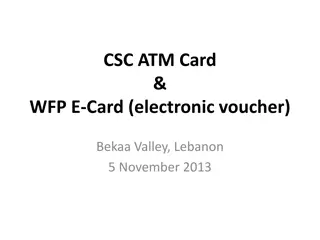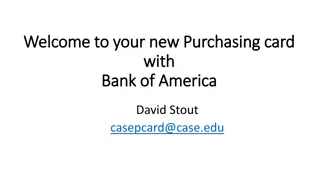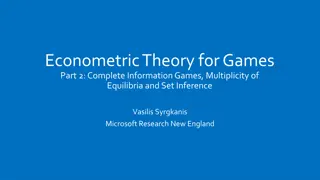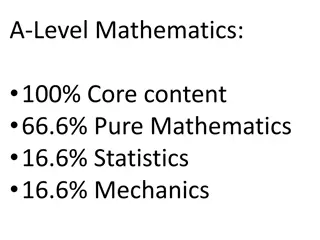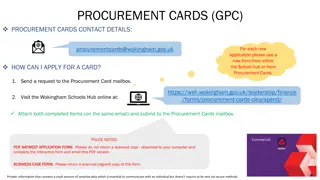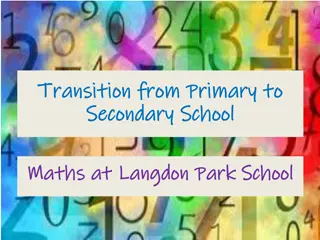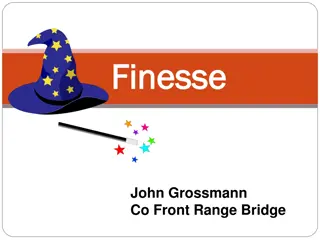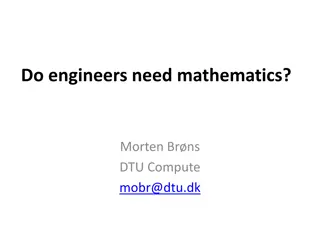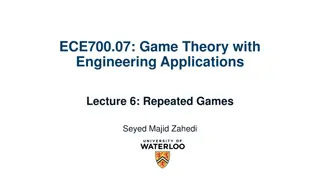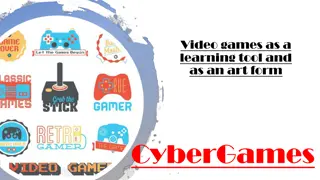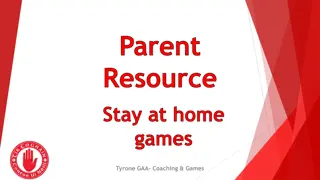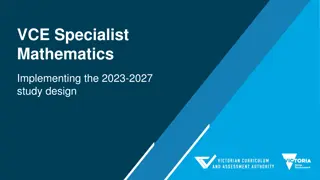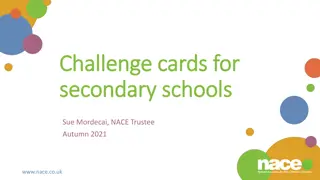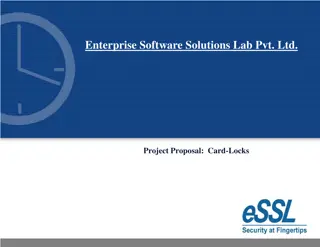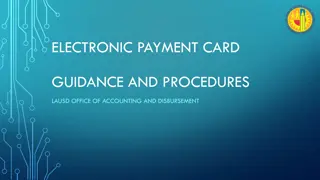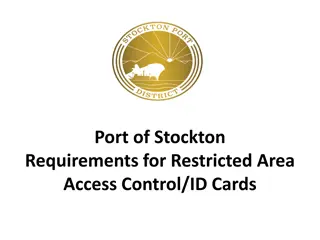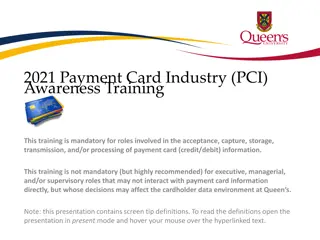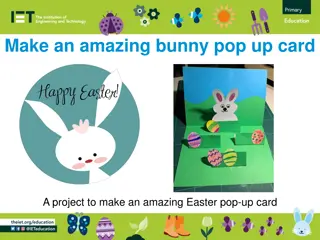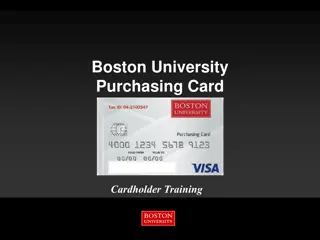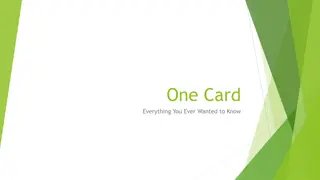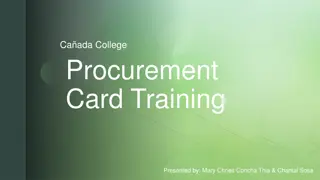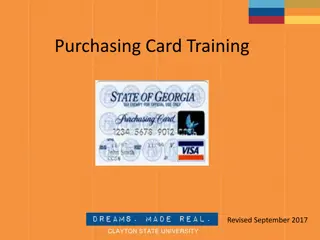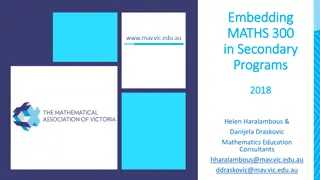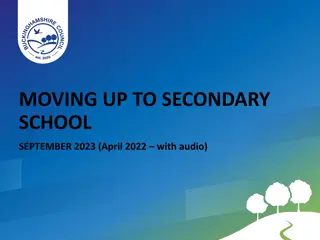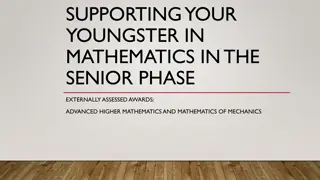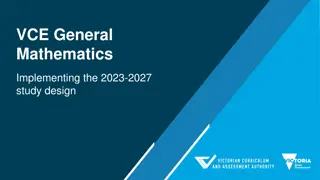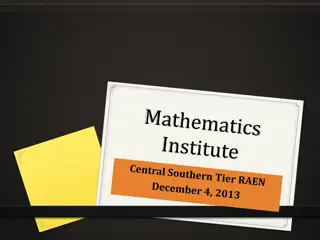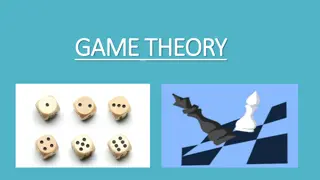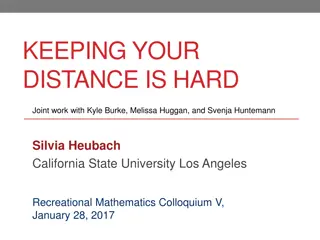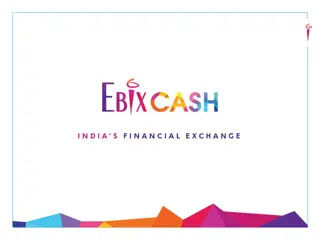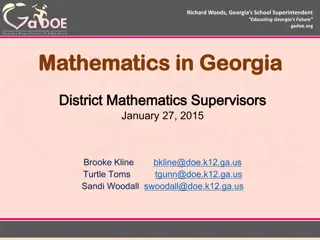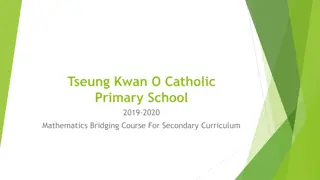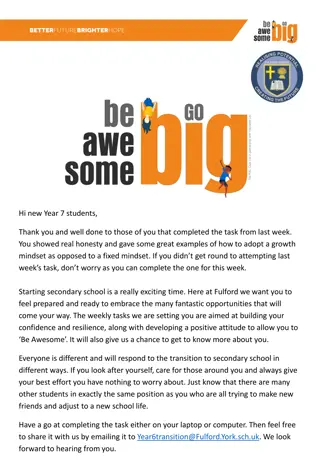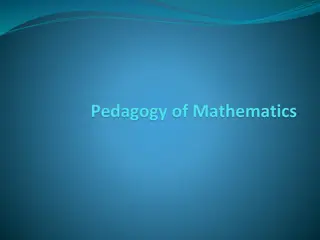Interactive Mathematics Card Games for Secondary School Students
Many students enter Secondary School with a lack of key maths concepts such as fractions, decimals, and percentages, along with poor basic number skills and attitudes. The strategy presented aims to help parents, teachers, and students bridge these gaps using 12 different physical card games. These games develop mental thinking, offer brain training activities, and enhance logical thinking skills for players. The versatile use of the cards in classrooms provides a fun and engaging way to improve math abilities at various levels. Teachers can easily integrate these cards into lesson plans to cater to different abilities and create interactive learning environments.
Download Presentation

Please find below an Image/Link to download the presentation.
The content on the website is provided AS IS for your information and personal use only. It may not be sold, licensed, or shared on other websites without obtaining consent from the author. Download presentation by click this link. If you encounter any issues during the download, it is possible that the publisher has removed the file from their server.
E N D
Presentation Transcript
Presenter Richard Korbosky w: www.dapma.com.au e: richard@dapma.com.au
Many students enter Secondary School with: A lack of knowledge of some key maths concepts which includes fractions ,decimals and percentage Poor basic fact number skills Slow reaction times Poor attitude toward mathematics often disguised as laziness
Many parents are in a situation where they cannot help their children because many of them only remember the strategy used with them when they went to school . Here is a strategy most useful for schools and homes . Teachers, students and parents can play along with their children because the rules are simple and the same rules are used in the 12 maths card games. What changes is the content from PP Yr 10
Develops a players mental thinking because players are quickly calculating in their heads. It is brain training activity because a player needs to adjust to the changing mathematical representations shown on the cards. These mathematics representations are shown in pictures, words or numbers and players are switching from one representation to another. Players are involved in logical thinking.
There are 12 different physical card games. Players have to think before they make a decision about which card represents the highest or lowest value. Teachers to choose from a range of different card games and, hence can differentiate the learning environment from PP-Yr 10
The cards can be used in many different ways in the classroom. They can be used as a mental warm up strategy. They can be used as a reward when students finish work or they can be built into the lesson plan as an alternative strategy to cater for different levels of ability. The cards are durable and long lasting and can be easily accessed by players to use at any time : before school , in class time, during breaks and in after school care .
I find the maths cards are fabulous as a starter or warm-up activity in my Year 7-10 classes, and that the discussions they provoke with students are priceless . I have also found them valuable with lower ability students for matching and number line activities. It is really handy to have the different difficulty levels in times tables and fractions, so that I can give specific students cards to suit their ability. I will happily recommend the Dual-oh cards to other teachers because they are such a valuable tool. Thanks again! Jacky Chadwick Boddington District HS
I use your Dualoh cards for my maths class. I like how the cards have different levels. In some of my classes I have students who have low ability and others who are at higher levels. I give the cards out to students at the appropriate levels. After a while the students start to tell me what colour they like. I had one group who just continue to talk while I explained the rules, so I said you can do worksheets instead. When they saw how much fun the other students were having they changed their mind, ( of course it was too late ). Next time they listened. I gave it to my Year 10 and they did not want to stop. I use it as a mental maths activity but I find I can use it as a reward as well. If the students work they get to play with the cards. I love using the cards for the students who are lazy because they don't realise that they are learning. Thank you Richard the cards are a great resource. Tracie Oregan [Katanning Senior High School]
There are four different games ( Subitising game , whole numbers 10-110 game, Time Tables (Early) game and Fraction (Later) Game which make players think before they make a decisions about which card represents the highest value.
Leader board shows the players where they are at in terms of other players. Players can opt for novice, smart, or genius levels. The representations on the cards remain the same what happens is the timing is changed. Novice players have 10 seconds to answer the problem, Smart players have 5 seconds to answer Genius have 3 seconds to answer. If the player fails to answer within these response times then the computer will do it for them. Players who get all decisions correct receive bonus points. Players can choose games that are timed for 1 minute, 2 minutes or 5 minutes. Multiple players can play the app 2 or 3
Happy to come out to your school and go deeper into what these games cards are all about .


